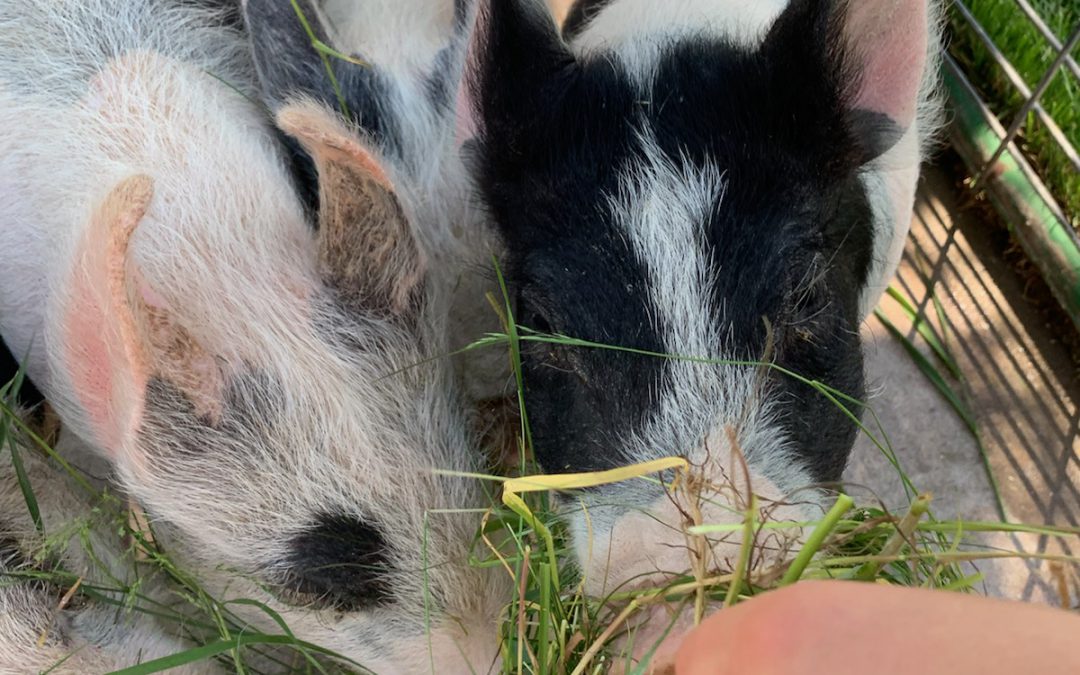
by Molly Jameson | Oct 3, 2022
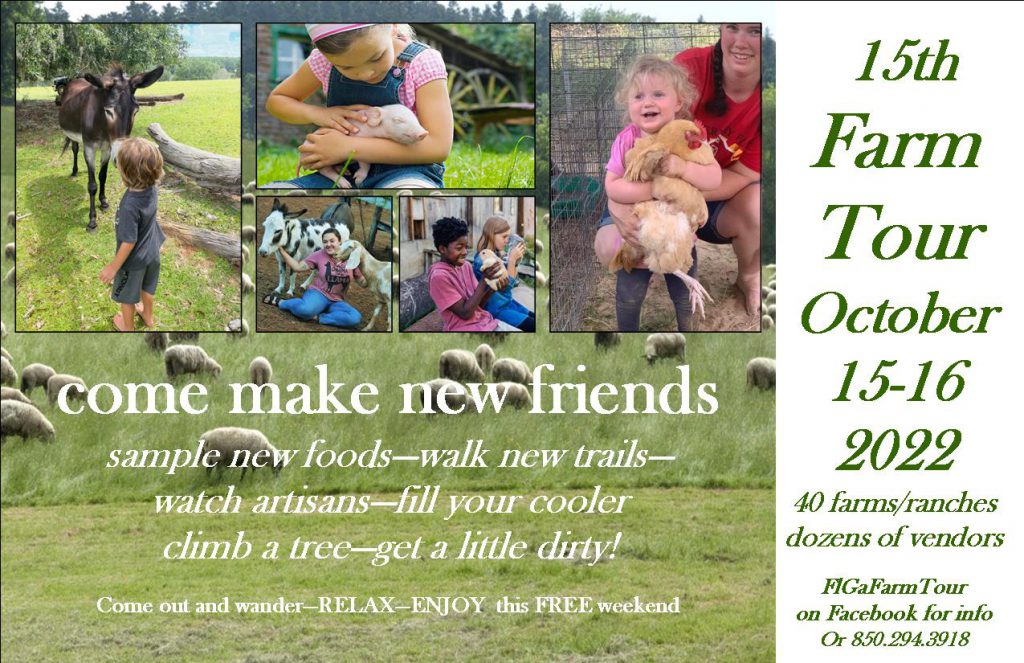
Come on down to the farm! The 15th Annual Farm Tour is October 15 and 16. Image by Millstone Institute of Preservation.
Fall is upon us, and that means it is farm tour season!
The 15th Annual Farm Tour is on Saturday, October 15 and Sunday, October 16, 2022. Farmers and producers in 12 counties in North Central Florida and South-Central Georgia will be open to showcase their various farming endeavors. It is a free family weekend of learning, exploration, and fun.
The Farm Tour has been organized and hosted by Millstone Institute of Preservation since 2016. It gives the community the chance to explore local producers in our area and become familiar with the farmers that make up our diverse local food system.
There are 40 farms, ranches, farm-to-table restaurants, markets, vendors, and gardens (including the Leon County “VegHeadz” Demonstration Garden on Saturday!) participating in this year’s Farm Tour, some of which have never participated in the past.
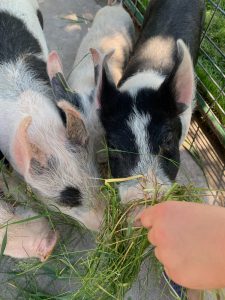
There is much to explore during the 15th Annual Farm Tour, including heritage breed livestock. Photo by Rachel Mathes.
The sites span nearly 140 miles east to west, from Greenville, Florida, to Chipley, Florida, and about 80 miles north to south, from Whigham, Georgia, to Crawfordville, Florida.
Each farm is open to the public at no cost, providing the opportunity for participants to learn the importance of supporting local agriculture and how they can do so.
There are many different types of farms to explore, including seeing a multitude of processes and demonstrations firsthand, such as honey harvesting, cow and goat milking, sawmill operating, bamboo extracting, horse grooming, compost turning, flower arranging, seed saving, wine manufacturing, sausage creating, satsuma juicing, cheese making, kombucha brewing, and much more.
You can also sample and purchase local products at many farm tour sites, including local honey, beeswax and honey products, local eggs, homemade breads, fresh veggies, various locally produced meats (bring a cooler!), pumpkins, vegetable seedlings, kombucha, muscadine wines, handmade soaps, fruit trees, cookbooks, and more. Many locations will also be serving food for sale, such as falafel and hummus; baked goods; beef, bacon, and pork burgers; ice cream and coffee; satsuma slushes, cookies, jellies, and syrups; and much more.
The Farm Tour Guide includes descriptions and directions to all the farm tour sites. A downloadable version of the Farm Tour Guide is available on the UF/IFAS Leon County Extension Facebook or you can download a copy using this link: https://drive.google.com/file/d/1kJIEUcHh1w55BS9y1fpUjfV5yb-MDMJa/view?fbclid=IwAR2Pt0jdjMmZrc9UaJ0tYn_eGnMkem8DvfjdPbkzsTaF8q7D2bFcFLgsoCs
See you down on the farm!
by Ray Bodrey | Apr 28, 2022
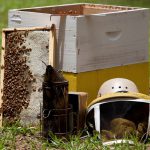 University of Florida IFAS Extension and the Beekeeping in the Panhandle Working Group have once again teamed up to offer the 9th Annual Beekeeping in the Panhandle Conference on Friday May 6th and Saturday May 7th 2022 at the Washington County Ag Center Auditorium.
University of Florida IFAS Extension and the Beekeeping in the Panhandle Working Group have once again teamed up to offer the 9th Annual Beekeeping in the Panhandle Conference on Friday May 6th and Saturday May 7th 2022 at the Washington County Ag Center Auditorium.
This year’s event will feature: Hands-on open hive experiences, presentations on the latest in research-based beekeeping management practices, interaction with expert beekeepers, vendors with beekeeping equipment, and hive products. Door prizes will be available as well!
The registration fee for the event will be $35 for one day or $55 for both days and $15 per day for youth 12 and under.
The activities will take place from 8:00 am – 5:00 pm Central Standard Time each day and will include a catered lunch.
Location: 1424 Jackson Avenue, Chipley, FL
Ways to register:
Registration link: https://www.eventbrite.com/e/9th-annual-beekeeping-in-the-panhandle-conference-trade-show-tickets-269199873067
Or drop by the Washington County Office at 1424 Jackson Avenue in Chipley.
For more information contact Washington County Extension Office at (850) 638-6180.
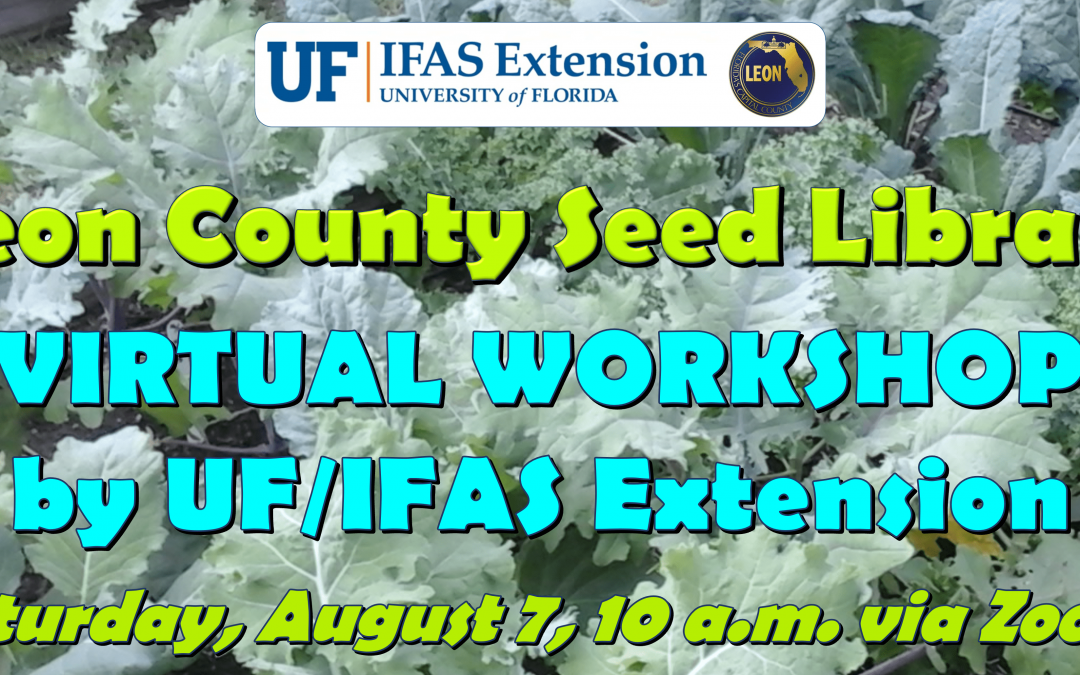
by Molly Jameson | Jul 15, 2021
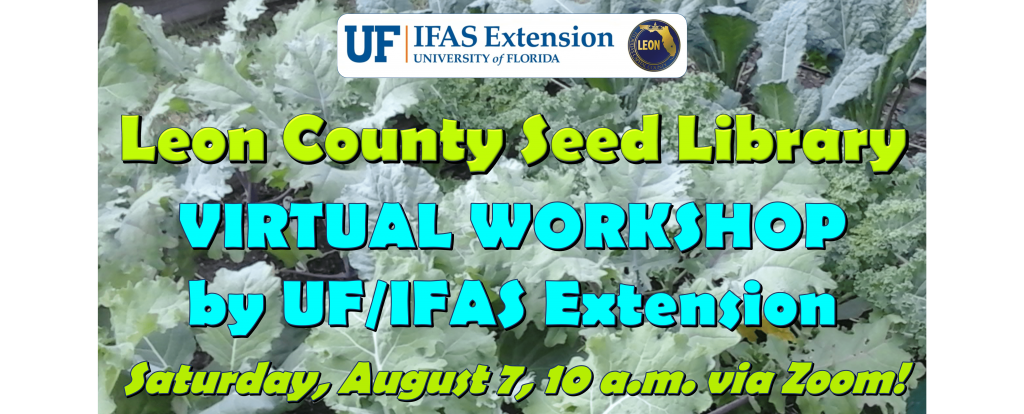
Join us via Zoom on Saturday, August 7, for our Leon County Seed Library Virtual Workshop. Graphic by Molly Jameson.
Join Us August 7 for the 2021 Leon County Seed Library Virtual Workshop
Planting vegetable seeds and growing a garden is a great way to get outdoors and appreciate nature. Since 2015, the Leon County Public Library has supported gardeners in Leon County by providing vegetable seed packets for patrons to take home and plant in their gardens.
To kick off the Fall 2021 Seed Library, agents with UF/IFAS Leon County Extension are hosting the Leon County Seed Library Virtual Workshop on Saturday, August 7, from 10:00 a.m. to 12:00 p.m. via Zoom.
During the virtual workshop, Extension agents will discuss planting seeds, growing vegetables, and how to incorporate veggies into healthy meals and snacks. The workshop coincides with the first day the seeds in the Fall 2021 Seed Library will become available. Residents of Leon County can check out three sample seed packets per month with their library cards from all Leon County library branches.
Even if you are not a resident of Leon County, everyone is welcome to join us at the virtual workshop. Along with the gardening portion of the workshop, there will also be a live virtual cooking demonstration featuring vegetables available in the Fall 2021 Seed Library Program.
For more information about the Leon County Seed Library Virtual Workshop, please visit our Eventbrite page: https://seedlibraryworkshop2021.eventbrite.com. There is no cost to attend the workshop, but registration is required.
If you are a resident of Leon County, all you need is your Leon County library card to check out the vegetable seeds. Don’t have a library card? No problem! Leon County residents can apply online at the LeRoy Collins Leon County Public Library online card application page here: https://lcpl.ent.sirsi.net/custom/web/registration/.
Here is the list of the vegetable seed varieties that will be available starting August 7: Common Arugula, Waltham 29 Broccoli, Chantenay Red Core Carrots, Michihili Chinese Cabbage, Slo-bolt Cilantro, Alabama Blue Collards, Early White Vienna Kohlrabi, Rocky Top Salad Blend Lettuce, Pink Beauty Radishes, and Tokinashi Turnips.
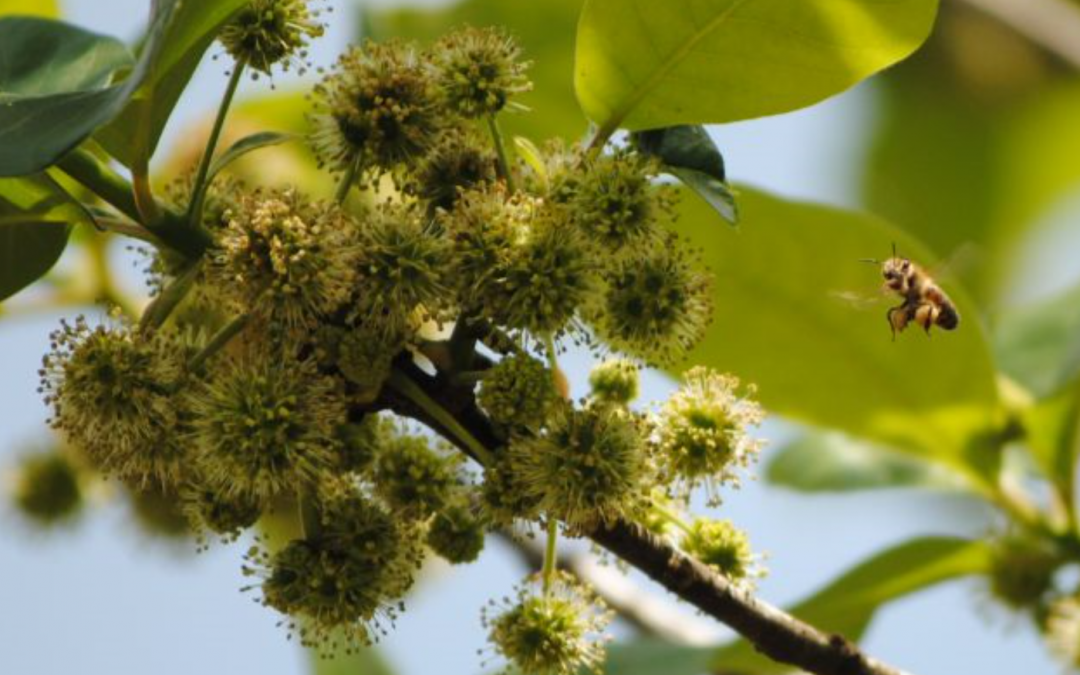
by Ray Bodrey | May 6, 2021
The Annual Tupelo Honey Festival will be held Saturday, May 15th from 9 am – 4 pm central time at Lake Alice Park in Wewahitchka. This is your chance to take part in a local treat. Area honey producers will be on hand to sell their honey in a variety of sizes. There will also be food, art and crafts, and live music.
For decades, tupelo honey has been synonymous with Gulf county. The nectar from the tupelo gum tree (Nyssa ogeche), produces some of the finest honey in the world. The common name “tupelo” is derived from language of the Muscogee Nation, also known as the Creek Indian Nation. The meaning of the word is “swamp tree”, as this tree flourishes in areas of wet soils and seasonal flooding. Gulf County is home to one of the largest tupelo forests on earth.
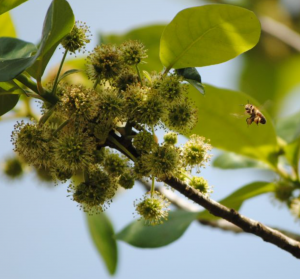
A honeybee visiting tupelo blossoms. Photo Credit: Gulf County Tourist Development Council.
The tupelo bloom season lasts from approximately mid-April to the end of May. This is an anxious time for beekeepers. Tupelo blooms are very temperamental and delicate in nature. For this short period, beekeepers hope for little wind or rain and no cold temperatures, as any of these factors can make or break tupelo honey production. Regardless of seasonal impacts, the demand for Gulf County’s tupelo honey never subsides.
Please visit http://www.tupelohoneyfestival.com/ for more information on the festival. For more information on beekeeping, contact your local county extension office.
UF/IFAS Extension is an Equal Opportunity Institution.
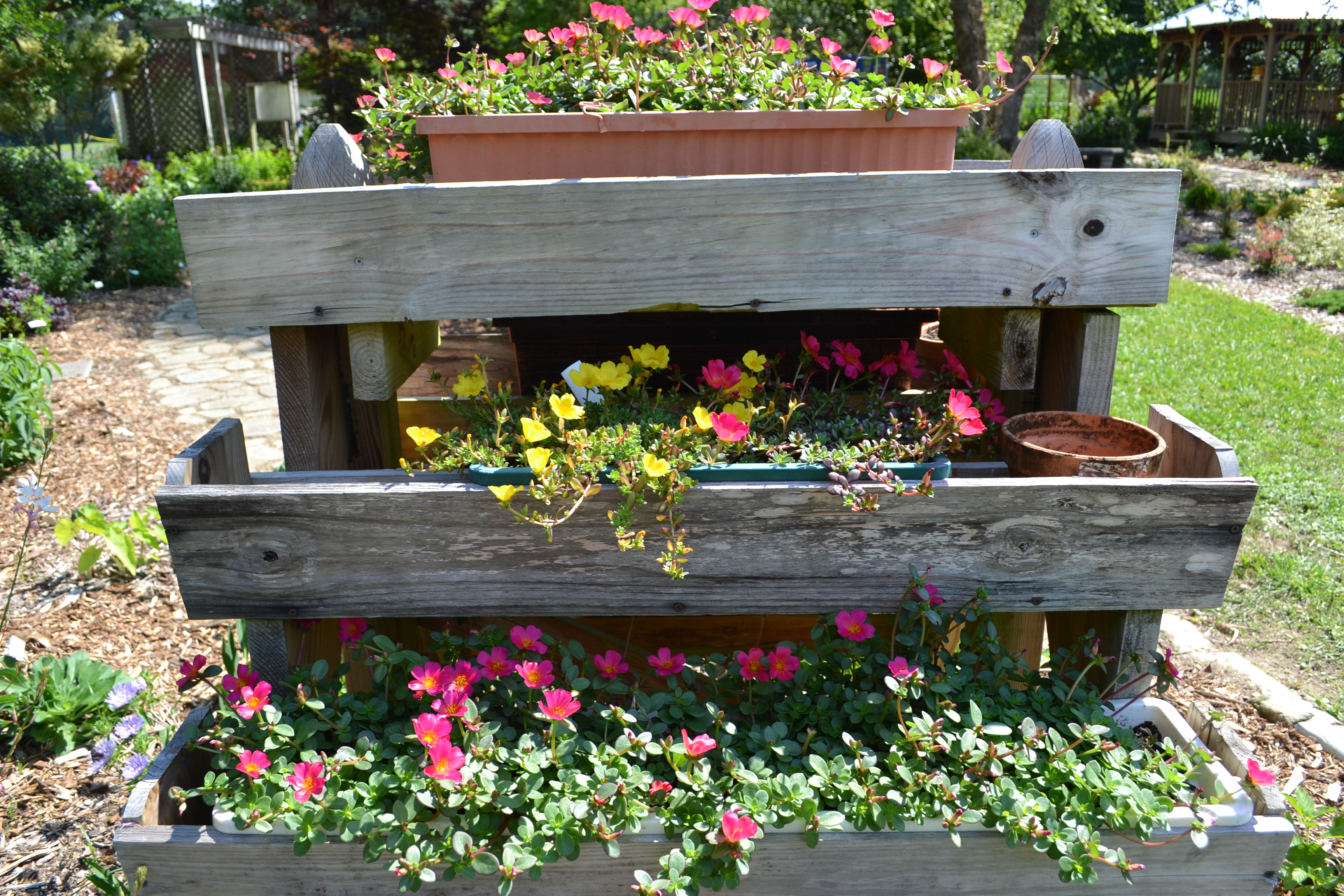
by Matt Lollar | Mar 4, 2021
Plant with Purpose: Written by Rachel Mathes
Last spring, we were all ready to host another Open House and Plant Sale on Mother’s Day weekend. When the realities of the pandemic became clear, we canceled the event for the safety of everyone involved. We typically have more than 500 visitors and dozens of volunteers on site. This year we are happy to announce we have adapted our annual fundraiser to a monthly learning and growing opportunity for the whole community.
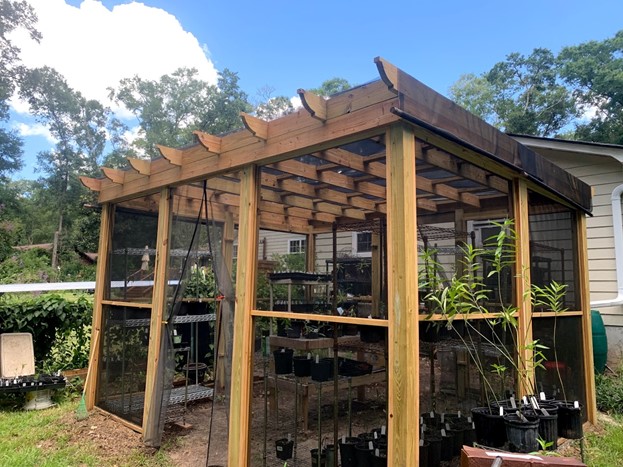
Master Gardener Volunteer Jeanne Breland is growing native milkweed in her monarch exclusion fortress for a Plant with Purpose talk and sale in the spring. Previous years’ milkweed have been eaten by monarch caterpillars before the sale so Jeanne has built her fortress to get the best results. Photo by Rachel Mathes
Our Master Gardener Volunteers will be teaching Thursday evening classes on particular plant groups throughout the year in our new series: Plant with Purpose. Topics will range from milkweed to shade plants to vegetables and herbs for different seasons. Attendees can attend the talks for free and grow along with us with the purchase of a box. These boxes are modeled after community supported agriculture (CSA) boxes you can purchase from local farms. Buyers will get a variety of the plants discussed in the plant lesson that week. For example, in our first event, Growing a Pizza Garden, we will have two tomato plants, two pepper plants, and one basil plant available for $20. Throughout the year, prices and number of plants will vary depending on the topic.
We hope with this new model of presentations and plant sales will enable us to remain Covid-safe while still bringing horticulture education to the community. Classes will be held on Thursday evenings from 6-7 pm via Zoom. Register on our Eventbrite to get the Zoom link emailed to you before each talk. Plant pick up will be the following Saturday from 10 am to noon. Master Gardener Volunteers will load up your plant box in a contact-free drive thru at the UF/IFAS Leon County Extension Office at 615 Paul Russell Rd.
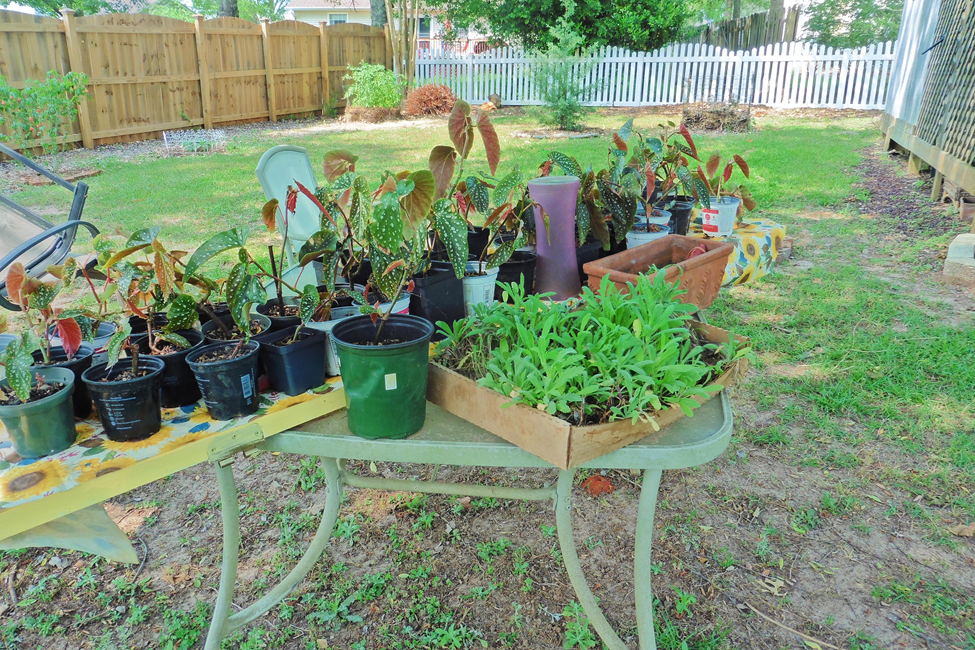
Propagation of angel wing begonia and other plants by Joan Peloso, Master Gardener Volunteer.
Master Gardener Volunteers are already growing plants for you to purchase throughout the year. Landscape plants, herbs, vegetables, shrubs and even trees will be available later in the year. Funds raised from this series help fund our Horticulture programming. Some notable programs that will benefit from Plant with Purpose include our Demonstration Garden, 4-H Horticulture Club, the Veterans’ Garden Group at the VA Tallahassee Outpatient Clinic, and various school gardens we help support throughout Leon County.
In the last year, we have adapted many of our programs to meet virtually, and even created new ones like our Wednesday Webinar series where we explore different horticulture topics twice a month with guest speakers from around the Panhandle. While we still can’t meet in person to get down in the dirt with all of our community programs, we hope that the Plant with Purpose series will help fill the hole left by our cancelled Open House and Plant Sale. Join us for the first installment of Plant with Purpose on Thursday March 18th from 6-7pm. Pick up for purchased plant boxes will be Saturday March 20th from 10am-noon.
To register for this event and other events at the Leon County Extension Office, please visit the Leon County Extension Office Events Registration Page.
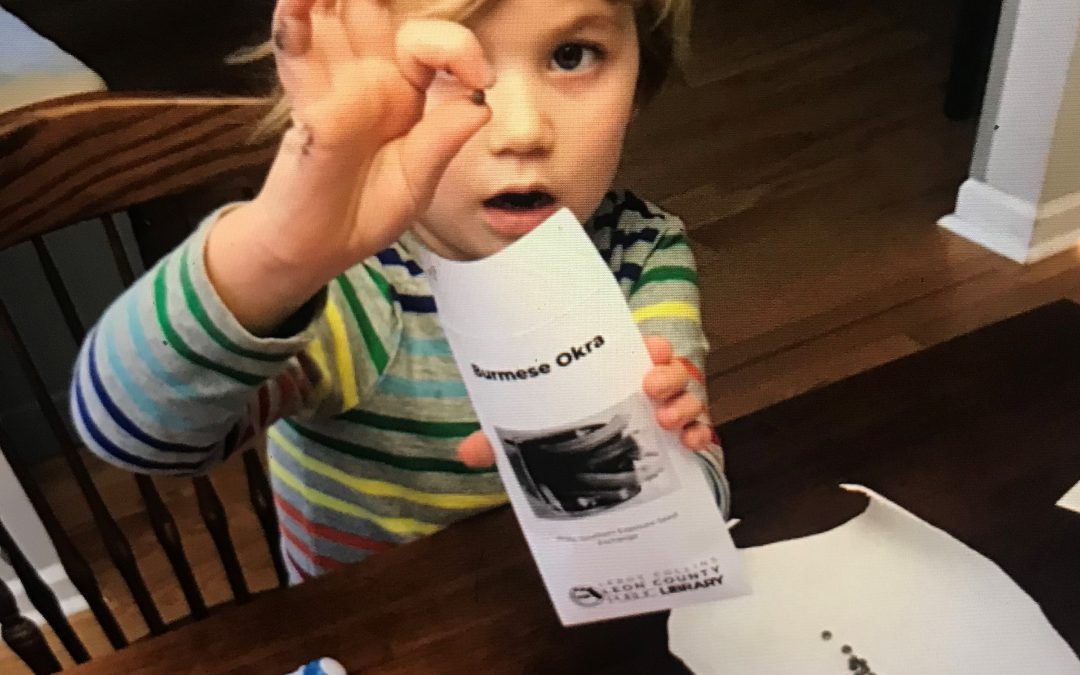
by Molly Jameson | Feb 11, 2021
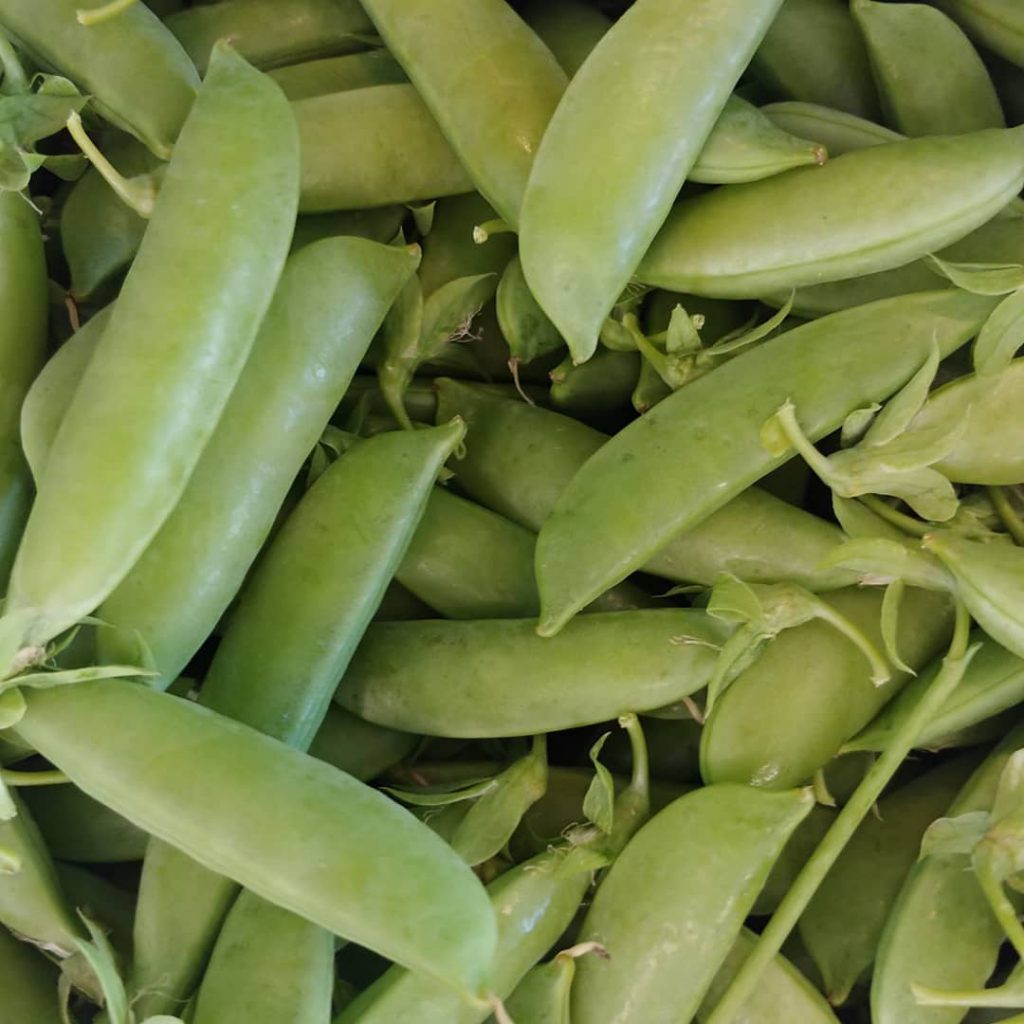
Sugar snap peas prefer to be planted when the soil is cool and the pods are delicious raw or cooked. Photo by Full Earth Farm.
Leon County’s Spring 2021 Seed Library Program Starts February 13
Although we are still experiencing the coolness of winter, the spring gardening season is right around the corner. To get a head start on the heat that will start taking over by May – and certainly by June – it is important to have a spring garden plan. If you want to start your veggies from seed, certain crops, such as tomatoes, need to be seeded soon for best results. Other warm-loving crops, like squash and cucumbers, also benefit from an early start to beat the life cycles of many common pests.
Need seeds to start your garden? Well, if you live in Leon County, you are in luck. Starting on February 13, 2021, residents of Leon County can “check out” up to three sample seed packets per month with their library card as part of Leon County’s Seed Library Program. The vegetable seeds can be checked out from any of the seven library branch locations. Leon County residents can apply for a library card online at the LeRoy Collins Leon County Public Library online card application page (https://lcpl.ent.sirsi.net/custom/web/registration/).
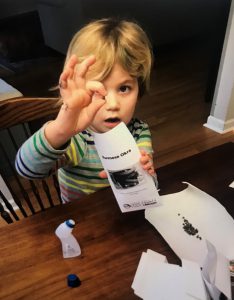
A young volunteer helped pack seeds from home for the Spring 2021 Leon County Seed Library Program. Photo by Jeanne Breland.
Here are the vegetable seed varieties that will be available starting February 13:
- Italian Large Leaf Basil. This is a fast-growing plant, with four-inch-long green leaves that have an anise flavor and a sweet aroma.
- Jackson Wonder Butterbeans. A high yielding heirloom, these beans produce pods with three to five reddish colored beans in each. When dried, the beans develop a mottled pattern.
- A & C Pickling Cucumber. Plants are productive, producing many straight, dark-green fruits that are great for pickling when they are four to six inches long. Eaten fresh, they can be grown out to 10 inches.
- Edisto 47 Melon. Plants prosper in hot, humid climates and produce mildly sweet five-pound cantaloupes in about 90 days.
- Burmese Okra. Plants have very large leaves and at about 18-inches tall, produce slender curved 9 to 12 inch okra pods that are virtually spineless. Under 10 inches, pods can be eaten raw and are less viscous than some other varieties.
- Sugar Snap Peas. Plants produce sweet, crisp pods that can be eaten raw or cooked. Seeds germinate well in cool soil and plant growth is vigorous, requiring support.
- Corno di Toro Sweet Bell Pepper. This productive pepper, whose name translates to “Horn of the Bull,” produces thick horn-shaped fruit that is flavorful and great eaten raw or cooked.
- Butternut Waltham Squash. This winter squash produces four-to-five-pound fruits with necks that are thick, straight, and cylindrical. The flesh of the fruit is smooth and has a flavor that sweetens with storage.
- Black Krim Tomato. This Russian heirloom has indeterminate growth and produces 8 to16 ounce, brown-to-red fruit with a deep smoky flavor. The shoulders of the tomatoes are brownish green and darken with more heat and sunlight.
- Matt’s Wild Cherry Tomato. This deep-red small cherry tomato has indeterminate growth and produces soft fruit that is very sweet and full of flavor.
Whether you are located in Leon County or not, everyone is welcome to join us Saturday, February 13, from 10:00 a.m. to 12:00 p.m., for our Leon County Seed Library Virtual Workshop. Via Zoom, agents with UF/IFAS Extension Leon County will discuss spring vegetable gardening techniques and food waste prevention. There will also be a live cooking demonstration showing how to prepare healthy meals and snacks at home, featuring vegetables available in the Spring 2021 Seed Library Program.
For more information about the Leon County Seed Library Virtual Workshop, please visit our Eventbrite page: https://spring2021leoncountyseedlibrary.eventbrite.com. There is no cost to attend the workshop, but registration is required.
Happy spring gardening!














